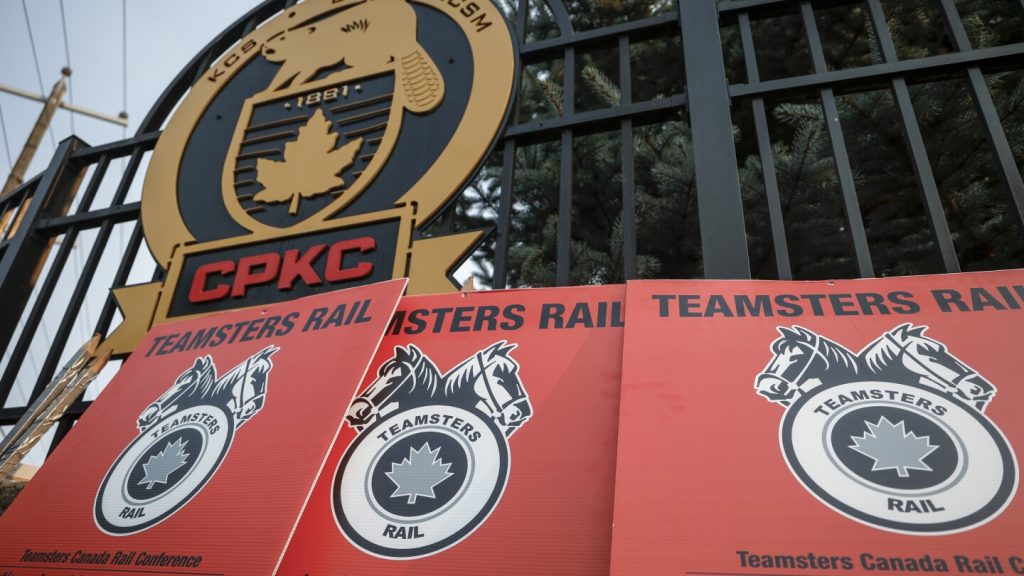A Canadian workers union issued a 72-hour strike notice to Canadian National, one of Canada’s major freight railroads, shortly after the company had announced plans to challenge a government order for arbitration. The Teamsters Canada Rail Conference filed the strike notice against Canadian National as a response to the government’s decision to force both CN and Canadian Pacific Kansas City Ltd. into arbitration to end a lockout. The strike notice was issued after trains had just begun rolling again following the stoppage, and the matter was set to be decided by the Canada Industrial Relations Board before the 72 hours were up on Monday morning.
Labour Minister Steven MacKinnon had announced the decision to force the parties into binding arbitration on Thursday, citing the economic risk of allowing the railroads to remain shut down. The Teamsters Canada President Francois Laporte emphasized that the strike was about exercising the union’s legal rights rather than disobeying the minister’s order. Trains operated by Canadian National had resumed operations across Canada, initially alleviating the work stoppage that threatened economic impacts in both Canada and the United States, which rely heavily on rail transport for goods and materials.
However, trains operated by Canadian Pacific Kansas City Ltd. remained parked as workers continued to picket, awaiting further developments in the arbitration process. Both railroads expressed commitments to getting their trains running and stated they would follow the ruling of the Canada Industrial Relations Board. The union’s decision to issue a strike notice was met with criticism from the railroads, with a CN spokesperson accusing Teamsters of holding the North American economy hostage to their demands. The lockdown of rail freight in Canada, worth over $1 billion Canadian a day, had significant impacts on the economy and disrupted rail shipments crossing the U.S. border.
Billions of dollars worth of goods move between Canada and the U.S. via rail each month, highlighting the importance of rail transport in supporting trade between the two countries. The President of the International Brotherhood of Teamsters emphasized the impact of the company’s decisions on the economy and the importance of fair compensation for workers. Rail transport disruptions not only affect the movement of goods but also impact commuters in Canada who rely on trains for transportation. The ongoing labor dispute between the railroads and the union highlights the challenges faced in resolving issues related to labor rights and economic stability within the rail industry.


